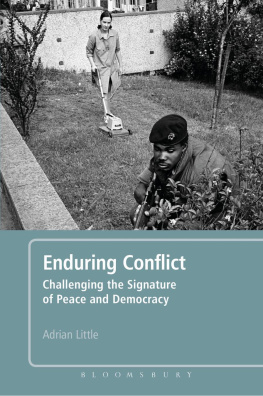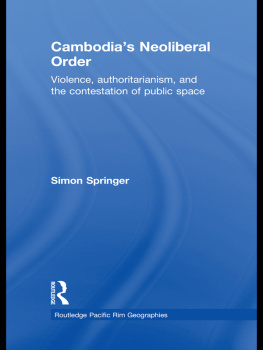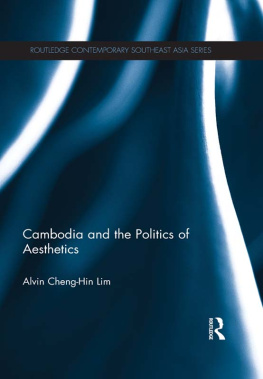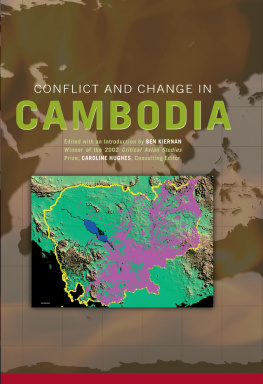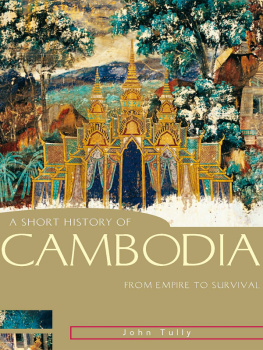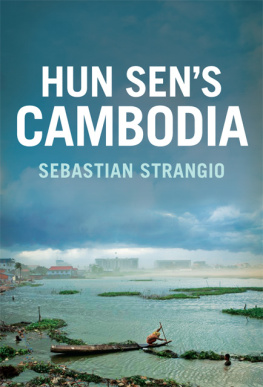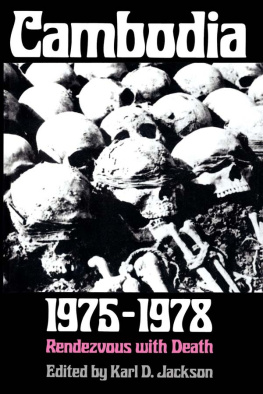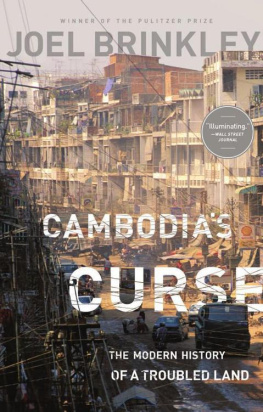First published in 2000 by
Curzon Press
Published 2015 by Routledge
2 Park Square, Milton Park
Abingdon, OX14 4RN
711 Third Avenue, New York
NY 10017
Routledge is an imprint of the Taylor & Francis Group, an informa business
2000 David W. Roberts
Typeset in Garamond by LaserScriptLtd, Mitcham, Surrey
All rights reserved. No part of this book may be reprinted or reproduced or utilised in any form or by any electronic, mechanical or other means, now known or hereafter invented, including photocopying and recording, or in any information storage or retrieval system, without permission in writing from the publishers.
British Library Cataloguing in Publication Data
A Catalogue record of this book is available from the British Library
Library of Congress Cataloguing in Publication Data
A catalogue record for this book has been requested
ISBN: 978-0-700-71283-0 (hbk)
ISBN: 978-0-700-71424-7 (pbk)
Over the course of the last decade, the number of independent states facing a form of political transition and embracing different types of democracy has increased dramatically. It is inimically linked to the Liberal American tradition, and through that, the rest of the Liberal world.
There are a number of forces involved in this process. The call for freely elected, open and accountable government comes from grass roots movements, such as those in the Philippines in the 1980s, or in Romania and Czechoslovakia in the late 1980s, or in Nigeria in 1993. Demands for more open, democratic and accountable government come from the World Bank and the International Monetary Fund in the form of lending conditionality. Some international institutions and individuals also propose democracy as a panacea for post-Cold War conflict resolution, although this has only been a fairly recent phenomenon. Indeed, the speed at which democratisation has moved geo-politically since the late 1980s is matched perhaps by its slothful progress since the end of World War Two. One of the principal impediments to the spread of liberal democracy since 1945 has been resistance from states eschewing this form of political organisation in favour of the single party communist or authoritarian capitalist state. The USSR, the Peoples Republic of China, the east European bloc, and numerous states in the developing world offered an alternative to western Liberalism.
The further development and consolidation of the communist, socialist or capitalist single party state model of political organisation after 1945 lay at the heart of the limits on the immediate spread of the Liberal ideology which had triumphed over the Fascist assault. In the period following the second world war, until the late 1980s, the relationship between the various states adopting Communism or pursuing liberal democracy was strained at best; the two represented conflicting views of the world with little room for ideological conciliation. This was to change dramatically, however, if not with the collapse of communism as a political modus operandi, then with the pre-eminence of the capitalism attached to most of the developed democracies, as well as to some of the dictatorships. There are, of course, many reasons why the Cold War ended the way it did, and at the time it did; however, this book is more concerned with one of the many consequences of that ending.
The removal of a key barrier to the spread of what Young refers to as The Liberal Project at the end of the Cold War had as a consequence the further spread of liberal democracy as the dominant ideology for political organisation globally.
Accordingly, a coincidence of forces evolved which led some to believe that this final stage of democratisation had arrived. It represented both the pre-eminent form of political organisation, proven and necessitated by the decline of its main rival; and also represented a vehicle for the resolution of the many civil wars breaking out around the globe. Thus, democracy offered, at the fall of the Berlin Wall and after, both a replacement for the departing single party communist systems, and a solution to the phenomenon of the global outbreak of civil wars.
The two forces democratisation through political transition and civil war settlement merged into an evolving phenomenon that has been a significant characteristic of the international politics and relations of the post-Cold War period. Assumptions regarding the validity of democracy as the best form of political organisation, on the one hand; and the necessity to settle wars in which there may be several sub-national contenders for political leadership, on the other, pointed towards a fusing of concepts. Political settlements to civil conflict would take the form of elections to permit mass participation in the liberal tradition, reflecting the primacy and dominance of liberal values and precepts in the new world order. It also meant that many states would experience the trauma of political transition.
Another force for change at the end of the Cold War was linked with the movement towards using pluralistic elections for the resolution of the multiplying civil conflicts. Many of those conflicts involved states and contenders for political authority with little or no interest in, or experience of, holding multi-party elections. Furthermore, because of the nature of the conflicts, few parties to the wars would trust one or the other to conduct impartial elections. Thus the utility of a neutral interventionist force was elevated as a potential solution. In this context, the United Nations as an ostensibly neutral arbiter could, perhaps, facilitate the mechanisms of power transfer in such a manner that all sides might trust and respect. Countries fractured by civil war could turn, it was hoped, to a United Nations newly-empowered to wield its original mandate of preserving peace by the terms of the new world order.
It did not take long for national and organisational policy makers to realise the implications of and possibilities for a significantly increased role for UN intervention forces. Conflicts which had been off-limits to intervention during the Cold War because of superpower confrontation were debated in a fresh context which was no longer primarily dictated by such considerations. The UN could now broach resolution of the many conflicts contained within the framework of superpower hostility. Examples would come to include Angola, Cambodia, El Salvador and Mozambique, as well as Namibia and, to a lesser degree, Western Sahara.
The nature of the conflicts, and especially their multi-layered complexities where multiple contenders often vied for power in conditions of extremes of poverty and destruction, necessitated fresh approaches to intervention. Indeed, one of the characteristics of the new operations is that they are determined by increasingly complex and comprehensive political mandates. Thus, whilst in the Cold War some mandates had been as simple as the patrolling of a dividing line, such as in Cyprus, the complex nature of the post-Cold War conflicts required far more sophistication. Sometimes they would necessitate the transfer of refugees from second states. Other times they would need not just the separation of fighting groups but also their disarmament. In other cases they might require the provision of elections under UN supervision; and in yet others they might need a reconstitution of government and civic principles.


